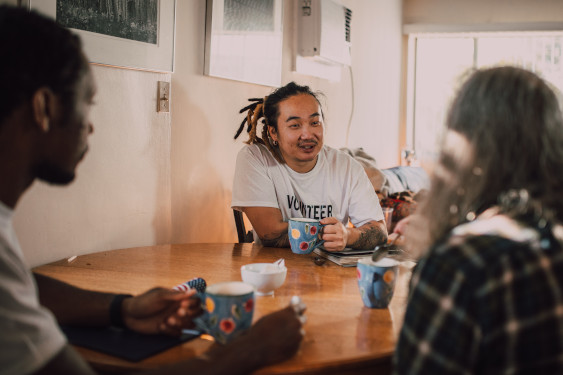Tips For Forming Community Groups
Published: January 4, 2022
Updated: January 4, 2022
By Rick Lamb in Community

What is a community group?
A community group for our purposes is any group of people that come together, without being paid, to work for the benefit of that community. You could have a neighborhood community group that organizes local events. Or an online community of Photoshop users sharing tips and tricks. Community members might pay membership fees, or be invited to make donations. A community group might also be called a volunteer group. A group is as much as anything defined by its own identity, that’s why group rituals and membership rites are often important to maintaining the group.
Types of community group
A Community of Action
A group of people who come together to achieve a shared goal. Maybe to change a law, build something, or stop something happening. Oddly communities of action often get so much out of their membership that after achieving their first goal they find other goals to keep the community active.
A Community of Practice
Professionals often create groups to share best practices and maintain their expert level of knowledge. On a smaller level, people form groups to help learn a skill. These could be Nurses discussing the best way to care for patients. Or amateur racing drivers talking about the best tires for wet weather driving. They all have very practical ongoing items for discussion and action.
A Community of Circumstance
People with shared circumstances often form support groups to exchange information and generally offer support to others who share the same experiences. A good example would be a group of people with a certain chronic disease. They have a shared identity based around their diagnosis and it would likely cause conflict if someone tried to join in with the group who didn’t have the disease. That circumstance may be temporary or permanent. A temporary circumstance could be a spouse to a soldier deployed in a war.
Why do you want to start a community group?
Given the types of community groups detailed above. What kind of group are you looking to create? It helps to have a clear idea of what you want from a group. Partly because you’ll also need to figure out what your members want from the group. But also because starting a community group from scratch can be a lot of work. So it is good to have a very clear idea at the outset about what you want from it.
Community group marketing
People say to always be growing your group. Because if it isn’t growing then it’s shrinking. If you already have social media accounts you should regularly post on those about the existence of your group. Another good tactic is to post on other group forums for similar but not directly competing groups. For locally-based groups, you might try using physical bulletin boards at community centers, churches, etc… Paid advertising is likely not possible unless you have a clear path to monetize the group and earn a substantial income.
Promote your super-members to community managers
Usually, a few people will start to take a more active role. Identify these people and give them jobs and titles. ‘Head Of Recruitment’ is a good one to start. You can also recruit people to help with managing finances and enforcing rules.
Planning your first steps
Where will you meet?
Community centers, churches, schools, and libraries are the most likely places to meet for a community group. Someone’s home is also possible initially for small groups.
When will you meet?
Having a regular date and time is great to establish a routine. One fun idea is to have an acronym to remember when the meeting is e.g. STEM - Second Thursday Every Month.
Create Community Guidelines
It’s important to start early before anything gets out of hand. We have an article giving some community guidelines examples..
Keep Members Engaged
Create a content calendar so that something is happening regularly and people stay engaged. Make the most out of online and offline events.
Track Community Metrics
Start small like tracking membership and attendance numbers. But the adage is you get what you track, so try to track the things that will make your group successful for you.